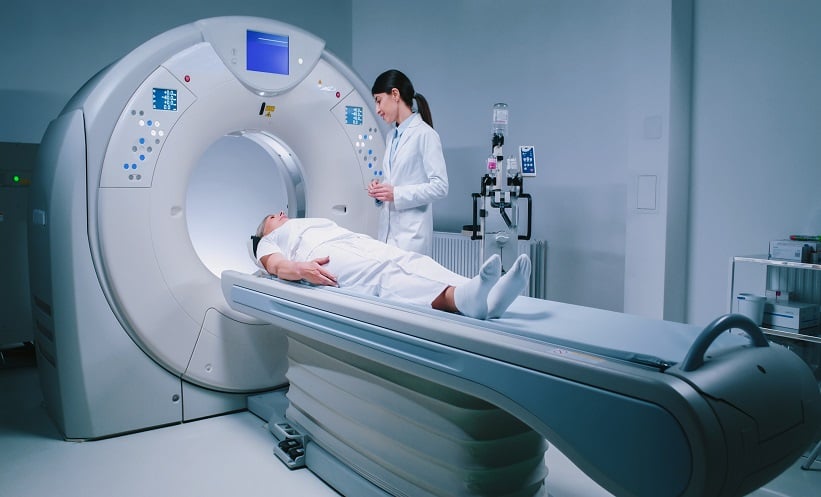PREOPERATIVE breast MRI is commonly used in breast cancer management to assess disease extent and aid surgical planning. Its clinical utility, particularly in specific cancer subtypes, continues to be evaluated. In a recent study focusing on women with HER2-positive and hormone receptor–negative breast cancer, researchers found no evidence that preoperative MRI conferred a survival benefit. This key finding has potential implications for imaging protocols and treatment planning in this patient population.
The large retrospective study included 1094 women diagnosed with HER2-positive, hormone receptor–negative invasive ductal carcinoma between 2007 and 2016. Of these, 523 underwent preoperative breast MRI. To reduce selection bias, the researchers used propensity score matching based on 19 clinical-pathologic variables to compare outcomes between those who received preoperative MRI and those who did not. Statistical methods included Kaplan-Meier survival analysis, Cox proportional hazards models, and inverse probability weighting.
Results showed no statistically significant difference in recurrence-free survival (RFS) or overall survival (OS) between the MRI and no-MRI groups. In the matched analysis, the hazard ratio (HR) for total recurrence with MRI was 0.69 (95% CI: 0.47–1.02; p=0.06) and for OS was 0.63 (95% CI: 0.39–1.00; p=0.05). Further multivariable analysis confirmed no association between MRI use and improved RFS (HR: 0.89; p=0.44) or OS (HR: 0.73; p=0.14). Rates of recurrence and mortality were slightly lower in the MRI group, but not to a statistically meaningful degree.
The findings suggest that routine preoperative MRI may not offer survival benefits in this subgroup of breast cancer patients and should be considered carefully in clinical decision-making. The study’s retrospective design and reliance on available registry data introduce limitations such as potential residual confounding and incomplete data on treatment variation. Nevertheless, the use of rigorous matching methods strengthens the validity of the findings. Clinicians should weigh the benefits and costs of MRI on a case-by-case basis, especially in the absence of evidence for improved long-term outcomes.
Reference
Kim HJ et al. Impact of Preoperative MRI on Survival Outcomes in Patients with HER2-positive and Hormone Receptor–negative Breast Cancer. Radiology. 2025;DOI: 10.1148/radiol.242712.








